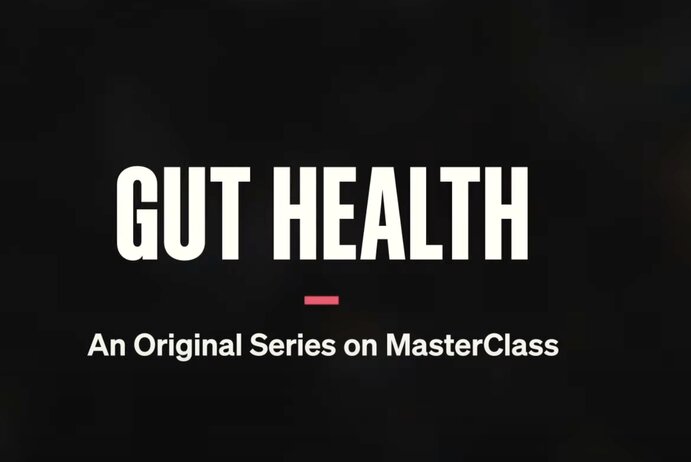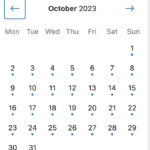In this new masterclass, “Gut Health Series,”, a three-part Original Series led by a panel of the world’s leading specialists that explores the critical connections between what we eat and our overall health.
Featured Experts and Subject Matter:
- Learn How the Gut and Brain Are Linked With Dr. Emeran Mayer: Leading gut health expert Dr. Mayer shares his thorough research on the connection between the brain and the gut. Get Dr. Mayer’s insights on how this relationship informs everything from our mood to our emotions and our brain function.
- Whip Up Gut-Friendly Recipes With David Zilber: David Zilber, fermentation expert and former head of the fermentation lab at Noma, teaches members how to support gut health through the art of culinary fermentation. Learn how to make recipes rich in fiber, prebiotics, and probiotics like yogurt and kombucha.
- Boost Your Immunity With Dr. Erica Sonnenburg and Dr. Justin Sonnenburg: Alongside the renowned Stanford-based microbiologists, immunologists, and authors, discover gut-friendly lifestyle choices to strengthen your immune system against both autoimmune and infectious diseases.
Episode 1: The Microbes Among Us – David Zilber, Dr. Emeran Mayer and Erica Sonnenburg & Justin Sonnenburg
Discover the vast ecosystem of beneficial bacteria, a.k.a. microbes, living in your gut, how it helps the brain and body function better, as well as easy recipes that help nurture this tiny universe—with the world’s leading experts on gut health.
- Dr. Eman Mayer:, Gastroenterologist and Neuroscientist, University of California–
- Microbes finding stability and nourishment found solace in hydras digestive system. The Human Gut Microbiome consists of the microorganisms, including bacteria, archaea, fungi, and viruses, that live in the digestive tracts of animals.
The Hunter-Gatherer Diet: Your Healthy Gut Biome Starter Kit: 2 Million Years Ago,
- The diet we evolved to eat evolved in total symbiosis with the microbiome. They had to look for raw fruits and vegetables for their survival. Complex carbohydrates are foods that microbes love, and they can come from berries and nuts.
- Pumpkin Seeds: Rich source of protein and unsaturated fatty acids. | Blueberries: Rich in antioxidants and can help manage cholesterol levels. | Anthocyanins: A group of antioxidants found in red, blue, and purple fruits and veggies. | Omega-3 Fatty Acids: Provide the starting point for making hormones that regulate blood clotting, contraction and relaxation of artery walls, and inflammation. | Golden Berries: Rich in Antioxidants. | Flaxseed: Helps improve digestion and reduce the risk of heart disease, type-2 diabetes, and cancer. | Chia Seeds: An excellent source of fibre, which can improve heart health and reduce cholesterol levels.
- The above seeds help with stimulating propulsion and secretion in the gut. They are like natural laxatives. The health benefits of these seeds to your gut health and gut microbial health are related to the fact that they all contain either fibre, large molecules that need the microbes to process, or they contain this group of molecules called Flavonoids.
Flavonoids: They are a group of polyphenolic compounds that contain anti-cancer, antioxidant, anti-inflammatory, and anti-viral properties.
- A combination of fresh raw fruits and vegetables goes into this healthy, gut-friendly diet. Diversity and richness are the hallmarks of a healthy microbiome.
To supercharge your gut health, try to eat 30 different types of fruits, vegetables, nuts, and seeds per week
- The Neolithic Diet: 7,000 – 1700 BCE
- During the agricultural revolution, humans could grow food and farm animals, so there were fewer food sources. This led to a change in the human gut microbiome as a result of this.
Dr. Justin Sonnenburg, Professor of Microbiology and Immunology at Stanford University.
- The gut includes the esophagus, stomach, small intestine and the colon. After food hits your stomach, it goes into your small intestine, where most nutrients are absorbed.
Humans are elaborate culturing vessels where our microbes have actually shaped our biology, behaviour to pass them from one generation to the next.
Dr. Erica Sonnenburg, Senior Research Scientist of Microbiology and Immunology, Stanford University.
- The human genome is small compared to the gene pool that we carry around. The human cells only account for 1% of our genetic material, while our microbiome accounts for over 99%. Our human genome is fixed at conception, and we are born devoid of microbes. Unlike our human genome, we have control over our microbe genome.
Fermentation makes for a happy gut biome.
David Zilber, Formentor, Chef, and Author
- Fermentation is one of two things – two enzymatic pathways that exist in bacteria and yeast, the glycolysis or breaking apart of sugar for the production of either ethanol, which is alcohol or lactic acid. That happens in the absence of oxygen.
- The Microbes that we often employ throughout human history to transform our foods are the same microbes that live in and on our bodies.

MasterClass is a streaming platform that makes it possible for anyone to learn from the very best. MasterClass is an online membership – accessible on your phone, web, Apple TV, Roku devices, and Amazon Fire TV – that offers classes on a wide variety of topics taught by 90+ world-class masters at the top of their fields.
Their immersive learning experiences combine incredible video content, downloadable materials, and social interaction with the MasterClass community, all of which users can explore at their own pace.
The annual membership is available for $180 USD, which allows unlimited access to ALL on demand MasterClass content for the year
Give One Annual Membership. Get One Free.
All the best in your quest to get better. Don’t Settle: Live with Passion.
For More Information: MasterClass Home Page



Comments are closed.